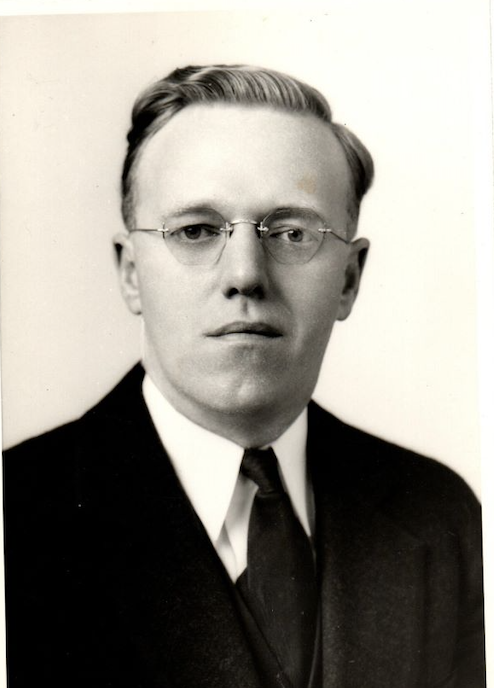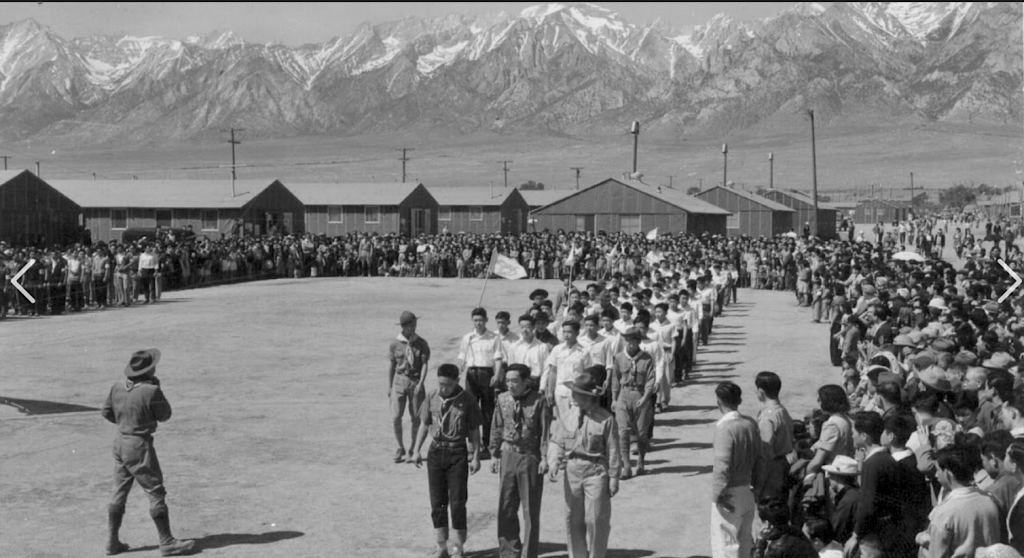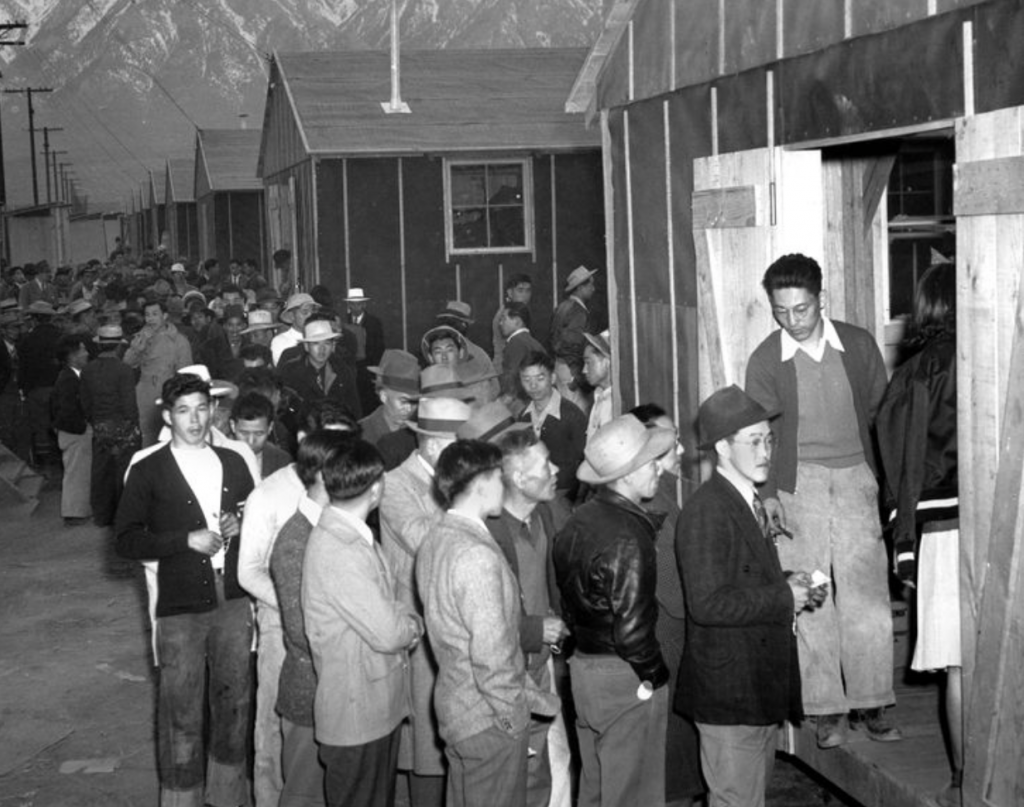Dr. Kenneth A Carlson
Minister, First Methodist Church, Glendale, CA
During a period in World War II when racial tensions were running high, a young Methodist minister from Glendale, CA took a trip north up the back side of the state to visit the remote Manzanar Japanese internment camp in the high desert near Bishop.
Upon his return, when the title of his upcoming sermon was released, “SO I WENT TO MANZANAR“, Rev. Carlson received intimidating threats reflecting the racism of the period and warning him not to preach on the subject. As he stepped in front of the pulpit that Sunday morning his wife and others feared for his life. Nonetheless, he delivered the sermon. Here you can read what he had to say that special day.
It was more than just a sermon. It provided an overview of Japanese history and that of Japanese Americans. Now, it’s our history and as you look through the original manuscript with the colored underlines and yellowed paper you can allow yourself to imagine what it must have been like for a young minister and other brave folks who were able to rise above the hatred of the times and to speak to the need for understanding and compassion in difficult times. In difficult times, a message which is as relevant today as it was then.
Read “So I Went to Manzanar”
"So I Went to Manzanar"
Dr. Carlson’s son Rick wrote and recorded this song which was inspired by his father’s experience at Manzanar, and by the importance of our vigilance to make sure nothing like this ever happens again in the USA, lest we forget.
I initially wrote the song “So I Went To Manzanar” out of respect to honor the past and the connection I had to it through my Dad, yet it evolved also into an anthem and metaphor for standing up to the injustices and prejudices we see happening today. After experiencing the event last month and meeting people involved in the tribute to the past, as well as activism for the present, the connection between the two has grown even stronger.
It was evident at the ceremony that Manzanar and the WWII internment camps continue to be beacons and symbols of the injustices that occurred in the past, that also provide inspiration to resist the currents of inhumanity and prejudices of the present. There is something phonetically strong about the name Manzanar as a symbol or place where we can go in our hearts and minds to stand up and be counted with our fellow man to resist those that seek to minimize others.
Copyright 2022. All rights reserved.


